
May 10, 2016
Setting their sights: Meet eight remarkable students ready to make their mark on the world after graduation
Share this story
Every May, thousands of Virginia Commonwealth University students mark major milestones in their lives by donning caps and gowns and heading to the Richmond Coliseum for VCU’s commencement ceremony. Despite the wide array of degrees and programs pursued, they share a common experience: They’ve devoted countless hours to their studies, gotten to know their professors and classmates, read (or ignored) their daily TelegRAM emails, followed the Rams during March Madness (whether actively or simply because everyone around them was talking about basketball), and gained new knowledge and hands-on experience that will influence the rest of their lives.
The eight student stories below provide a small window into the accomplishments, challenges and growth that the students attending commencement this Saturday have experienced during their time at VCU.
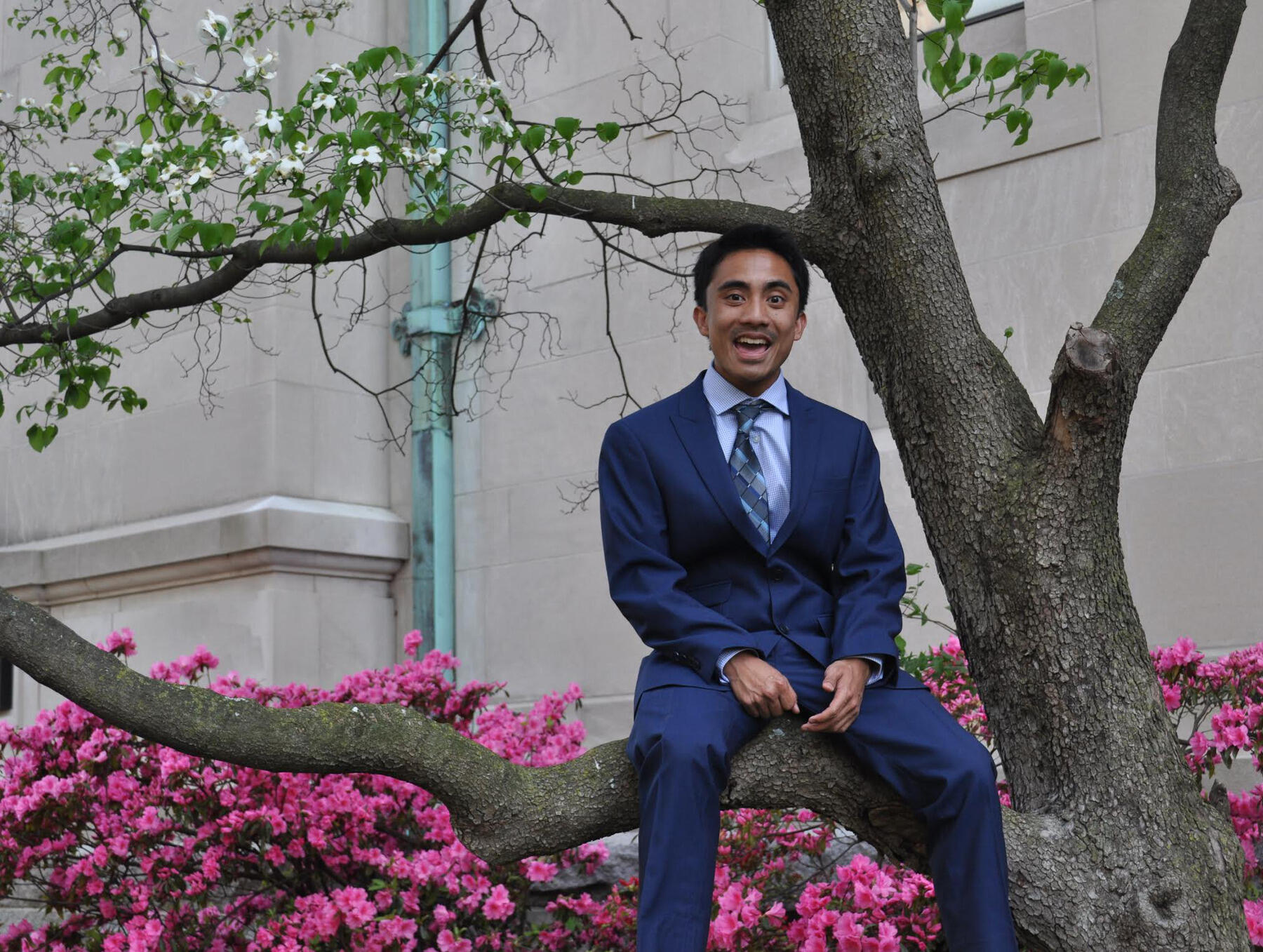
Christian Ruiz likes to perform under pressure, whether that’s making lifesaving decisions about what pharmaceuticals a trauma patient needs, or playing an award-winning violin piece in an opera.
Ruiz, originally from Chesapeake, Virginia, is about to graduate with a Bachelor of Science in chemistry from VCU’s College of Humanities and Sciences, with minors in biology and music. But he won’t be leaving VCU. Instead, he’ll begin his postgraduate studies at the School of Pharmacy next semester, where he’ll train to become an emergency department pharmacist.
Ruiz shadowed a VCU Department of Emergency Medicine pharmacist as part of his undergraduate degree and knew this was the field for him.

“I’m a little energetic,” explained Ruiz. “So I like dealing with trauma patients on the fly. It’s all about problem-solving quickly and working under pressure. It’s not like retail pharmacy where you pick a drug and package it. You have to diagnose the trauma patient, select the best medication, then look to make sure the medication is working. It’s a really good use of the knowledge and skillset I could gain as a School of Pharmacy student.”
Ruiz’s expansive skillset also includes reviewing and publishing scholarly work as co-editor-in-chief of Auctus: The Journal of Undergraduate Research and Creativity, co-leading Bible study at the Catholic Campus Ministry and playing violin as part of the VCU Symphony, which won first place at the 2014–15 National Opera Association Competition for its performance of “The Gondoliers.”
To Ruiz, chemistry and music are not so different. “They’re both about pattern recognition,” he says. “In music, if you figure out the pattern then you can figure out the piece. In chemistry, if you can see the patterns then you can see the problem.”
In April 2016, Ruiz, who is a VCU Honors College student, was awarded the Lauren A. Woods Scholarship by the VCU chapter of the Phi Kappa Phi Honor Society. The $3,000 scholarship also means a nomination to the national Phi Kappa Phi graduate scholarship. Ruiz will learn in June whether or not he has won one of the six awards of $15,000 or one of the 51 awards of $5,000.
Either way, Ruiz is prepared for his School of Pharmacy graduate studies and ready to perform under pressure once again. “I’ve been talking to a lot of pharmacy school students and they all say, ‘It’s the hardest four years of your life,’” said Ruiz. “But it’s all about how you deal with that bigger amount of stress. If I’m stressed I just give myself 10 minutes or 30 minutes and I play some pieces on the violin or piano. It relaxes me.”
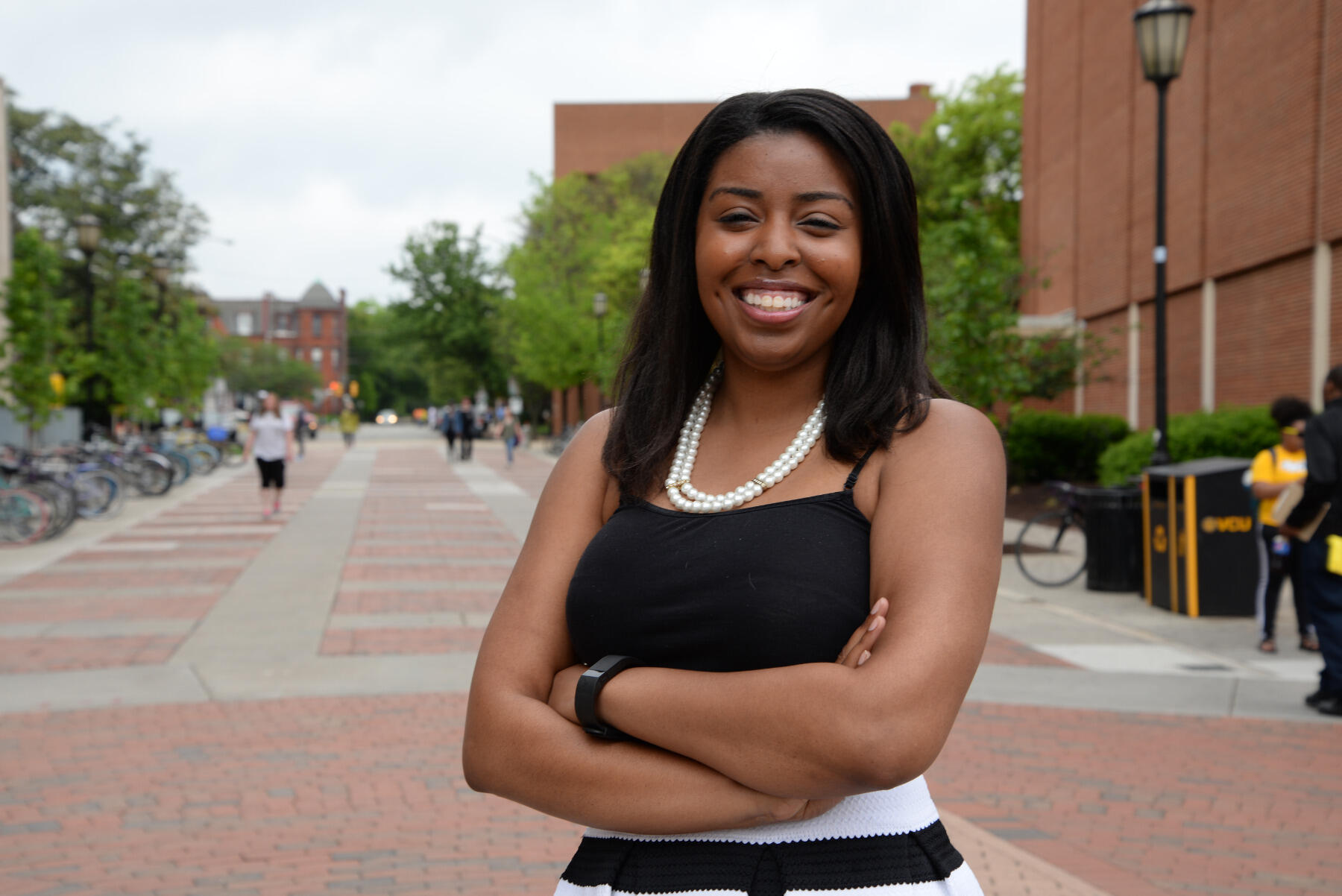
When she was growing up, it might have seemed unlikely that Allison Gilbreath would one day earn a Master of Social Work from VCU.

Life was not always easy for Gilbreath — as a youth she witnessed members of her family struggle with drug addiction and was overwhelmed within the social services system. She was angry about how children were treated as a number and not a person, until she came into contact with a volunteer from the Court Appointed Special Advocates program. One day, she decided, she would become a CASA herself.
As an undergrad at VCU, Gilbreath majored in criminal justice at the L. Douglas Wilder School of Government and Public Affairs and volunteered as a CASA.
“As a CASA volunteer, I started noticing that there were many policies and laws in our state that perpetuated families living in a cycle of poverty, which is a contributing factor in the issue of child abuse and neglect,” she said.
Following graduation, she received a prestigious Virginia Governor’s fellowship, which allowed her to serve in the Office of Public Safety, researching topics such as human trafficking and drug courts as an alternative to correctional facilities.
She also soon began to work for Prevent Child Abuse Virginia, serving most recently as the organization’s community engagement manager, a role in which she manages volunteers, oversees internships, and coordinates public events and partnerships with other organizations and the business community.
Gilbreath became increasingly interested in solving the underlying issues behind child abuse and neglect, and decided to return to VCU to pursue a master’s degree from the School of Social Work, focusing on the school’s “macro” track that explores ways to enact social change.
“Looking back and realizing how much that CASA made a difference in my life made me want to eventually go on into social work, but made me want to do more systemic work — where I can change systems — even though it’ll take me my entire career to do those sort of things.”
As part of her M.S.W. studies, Gilbreath interned in the Office of the Lieutenant Governor, helping out with constituent advocacy, writing opinion articles that appeared in the Richmond Times-Dispatch and getting a front row seat to see how policymaking works in the General Assembly.
Following graduation, Gilbreath aims to continue working to advocate on behalf of policies that make things better for children going through experiences similar to the ones she faced.
“In a weird way, I’m thankful for the situation because I feel like I wouldn’t be the same person had I not gone through those things,” she said. “It just changes the way you see people. And I think it makes me see people who are struggling with more compassion. I know that it happens to people, and it happens [to people from] every socioeconomic status, every race. It doesn’t discriminate.”
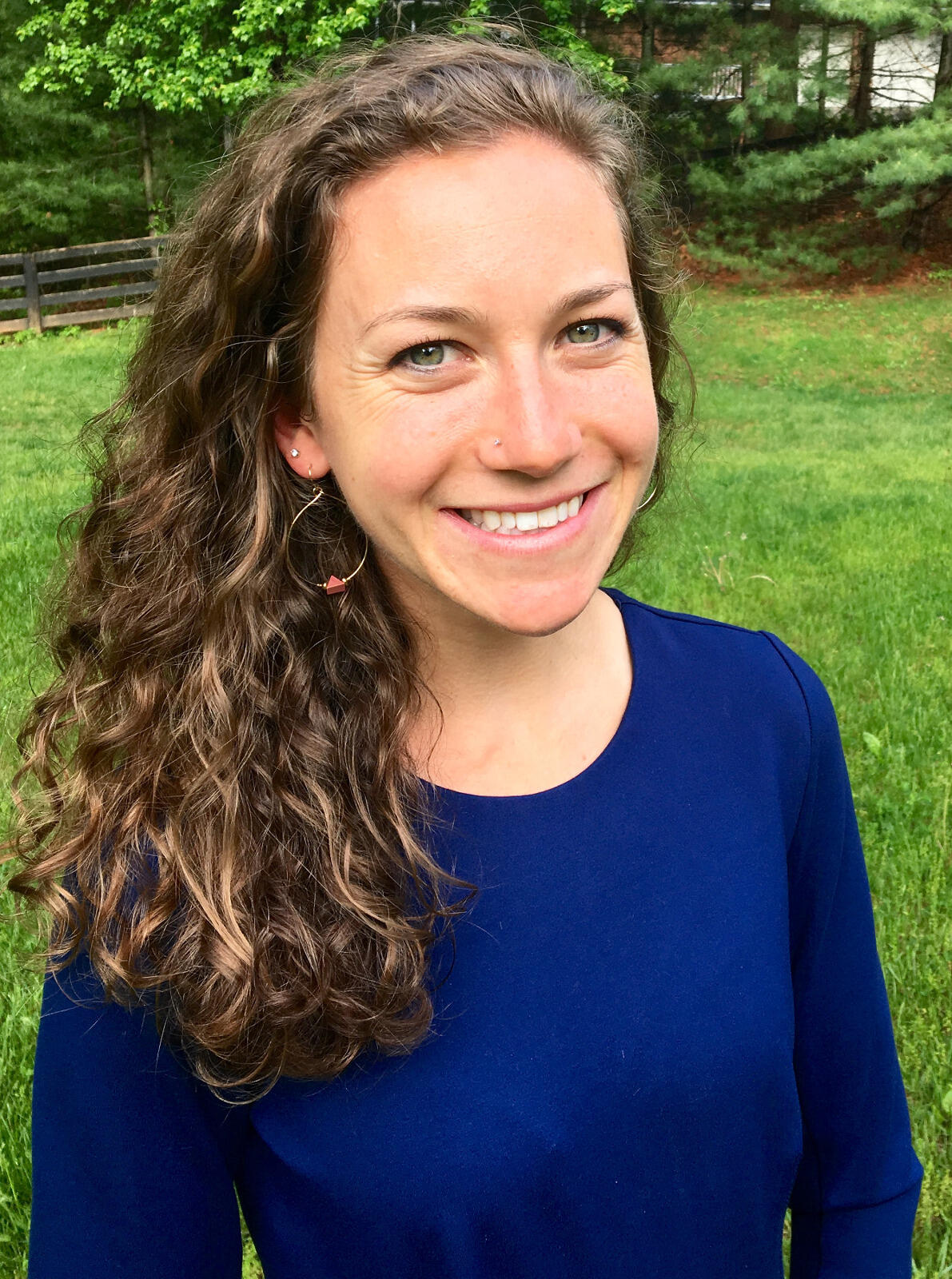
Suzanne Giunta wrote her application essay for the VCU School of Medicine from the dim light of her laptop in a hut in the Guyanese jungle. “It was tough given the no electricity situation,” the 27-year-old said.

Giunta taught math and science in Mabaruma, Guyana, for two years after completing her undergraduate degree in biomedical engineering at the University of Rochester. At the end of the school day, she would run a mile up a dirt road to a neighboring house that had electricity. She had about an hour to charge her laptop and access the Internet for medical school applications before the sun began to set and she had to run home. “You don’t want to walk back through the jungle in the dark,” Giunta said.
Giunta credits her interest in medicine to the years she spent living in that small village on the Venezuelan border. A few weeks after arriving in Mabaruma, Giunta started shadowing the local hospital’s only doctor on his daily rotations. It was there that she saw patients with malaria, tuberculosis and extreme malnutrition. She saw a 45-year-old mother give birth to her 19th child and a mother who had walked alone through the jungle for three hours to reach the hospital and then give birth 20 minutes after arriving.
No matter where people live, everybody needs health care.
“No matter where people live, everybody needs health care,” Giunta said. Two weeks after returning to the U.S., she started medical school at VCU with her sights set on providing medical care to underserved communities.
Giunta was in the inaugural class of the Family Medicine Scholars Training and Admission Track, which is a VCU School of Medicine program designed for individuals who are certain upon matriculation of their goal to be family physicians. She also joined the school’s international/inner city/rural preceptorship, which is an organization committed to increasing the number of primary care physicians practicing in rural, urban and international underserved communities.
“Both programs have helped me develop my interests, but in different ways,” Giunta said, adding that the family medicine program provided her with mentorship, while the preceptorship exposed her to underserved communities who she might not have otherwise met. “As I went on residency interviews and met candidates from other schools I realized how lucky I am to be at a school that supports all of my interests.”
After matching with a family medicine residency in Seattle in March, Giunta received the Dr. Rosemarie T. Greyson-Fleg and Dr. Jerome Fleg Fund Scholarship, which is a School of Medicine scholarship awarded to a fourth-year student pursuing a career in the primary care fields of family medicine or pediatrics. In the fall, Giunta will work with urban, underserved patients at Seattle’s public health department. She plans to continue along that career path after completing her residency.
“I am thankful to VCU for supporting me,” Giunta said. “I had a well-rounded experience here and I’m fortunate for the last four years.”
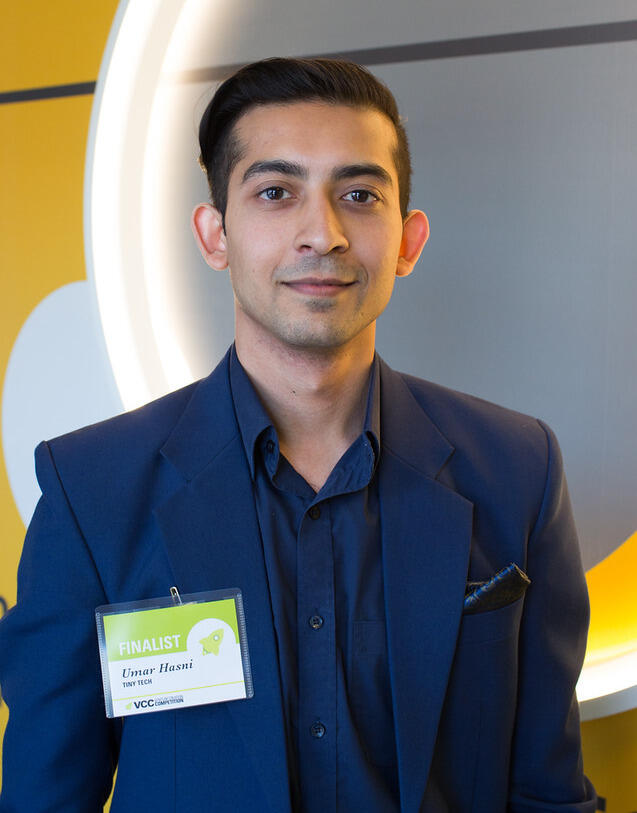
Umar Hasni had never been to the United States before coming to VCU in August 2012. He left Islamabad, Pakistan, for Richmond at age 21, a move precipitated by a conversation with his mom about how he could get the most out of his education, something his mother emphasized as a path toward freedom from any situation.
“My mom said, ‘Your passion is engineering so do you really think you’re getting the best over here?’” said Hasni, a senior in the School of Engineering.
He sees so much potential in his home country, though he recognized its limitations at providing the kind of education he wanted. “Over here I have more opportunities than I did before and far more areas I can work in,” he said.

Hasni has seized the opportunities available to him. He has carved out a path as a leader and entrepreneur, majoring in electrical engineering, a discipline he considers to be the most versatile, allowing him to do technical things most people can’t. “I’m working on medical stuff right now and people get surprised when I say I’m not a biomedical engineer,” he said. “I can go into anything.”
And he has. In the fall, he started a company with fellow students and a faculty member in the electrical and computer engineering department and the Brandcenter that makes maternity wear from material that protects pregnant women from electromagnetic radiation. The startup, Tiny Tech, recently won first place in the VCU Venture Creation Competition’s undergraduate category during Student Research Weeks and is set for a soft launch early in 2017. They also won a grant from VCU’s Quest Innovation Fund.
Hasni and his senior design partners Christopher Deloglos and Patricia Moseh also developed the first 3-D printed antenna for a microwave hypothermia applicator that’s used to treat cancer patients. The design won first place in the multidisciplinary track at the School of Engineering’s Capstone Design Expo in April and also the school’s Sternheimer Award.
His achievements have capped off his academic career nicely, though he says he has found the most meaning in the close-knit ties he formed at VCU.
“When I came to the U.S., I was completely alone. I didn’t have any family to help me over here,” Hasni said. Over time, he came across people who had a major impact on his life, particularly Afroditi Filippas, Ph.D., associate dean for undergraduate studies in the School of Engineering. “That was one of the most meaningful things that has happened for me here, where somebody can be there for you so much and believe in you so much,” he said.
All of these experiences at VCU have been part of him working toward his vision and greatest dream. Hasni is keeping specifics on this close to the vest but says it revolves around helping people — and that he’ll be staying in Richmond for the foreseeable future.
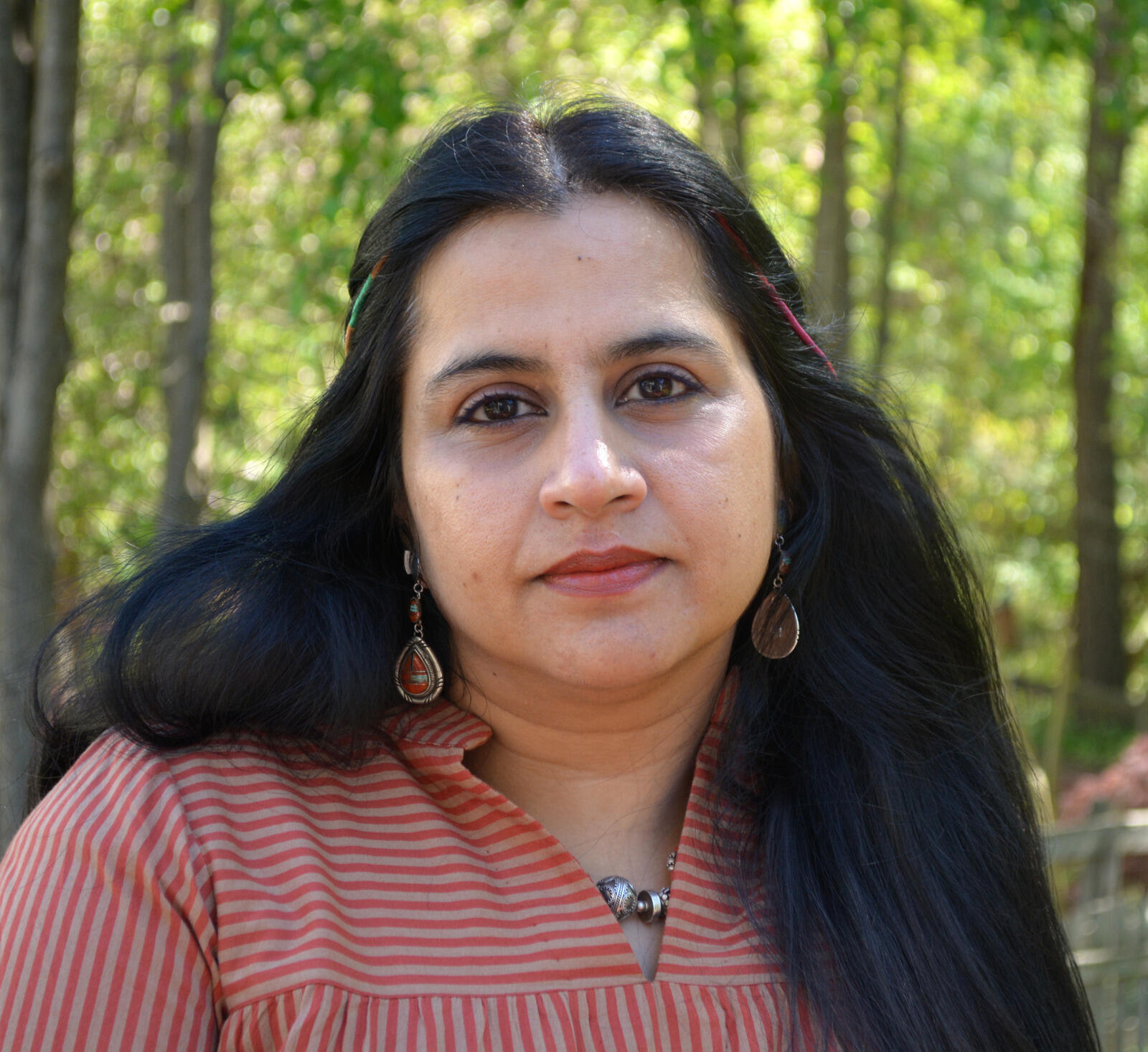
Samina Iqbal was 25 when she moved to the United States from Pakistan in the late ’90s with a 7-month-old and a husband who was attending graduate school in Minneapolis.
Coming from a middle-class family in a culture where, as Iqbal put it, marriage puts an end to any kind of academic ambitions and careers, one could understandably think that Iqbal was a docile wife and mother following her husband wherever he went.
“In general, it is very rare for South Asian women to think beyond the home, children and family responsibilities,” she said. “Especially after having children, home is the ultimate sanctuary to which women confine themselves.”
Iqbal is not only an exception to that stereotype, she’s trying to break it. Having earned a Bachelor of Fine Arts in printmaking in 1997 from National College of Arts Lahore in Pakistan, she joined the Master of Fine Arts program at the University of Minnesota, earning her degree in 2003. During that time, she had her second child. The family then moved to North Carolina, where Iqbal taught studio arts at Appalachian State University for several years. This week she receives her Ph.D. in art history from the VCU School of the Arts.
The decision to go back to graduate school eight years after earning her master’s was not easy. She was in her late 30s and had to quit her job and move away from her husband and children. Adding to the pressure, her family abroad couldn’t understand why she wanted to go back to school.
“However, my husband and my two children were very excited and encouraged me on every step of the way to pursue my education,” Iqbal said.
The decision to go to VCU for graduate school was much easier. After researching universities with expert scholars in South Asian and modern art, she found Dina Bangdel, Ph.D., a well-known scholar of South Asian Art, and Robert Hobbs, Ph.D., professor, eminent scholar and the Rhoda Thalhimer Endowed Chair of American Art, at the VCU School of the Arts.
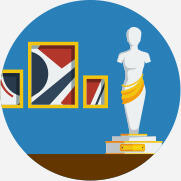
“So, basically, the faculty and the highly respected arts program brought me to VCU,” she said. “My thinking has been shaped by the education that I received here, which I feel has broadened my horizon and I see and think about my surroundings differently. Therefore, I realize the importance of education, especially for women.
“I think my effort to gain more knowledge and education as it is available around me [sets] an example for my daughter and my female cousins around me, who now admire me for my decision to continue my education.”
Her Ph.D. dissertation on “Modern Art of Pakistan” specifically focuses on a small group of six artists — the Lahore Art Circle — who were the harbingers of modern art in Pakistan in its formative year after its establishment in 1947.
It is a second life for me.
“Going back to school for a Ph.D. has not been easy financially, emotionally and socially for my family and myself, but I feel that I was very fortunate to have this opportunity,” Iqbal said. “It is a second life for me. I believe one has to be open to receive, and if there is a will, there is a way.”
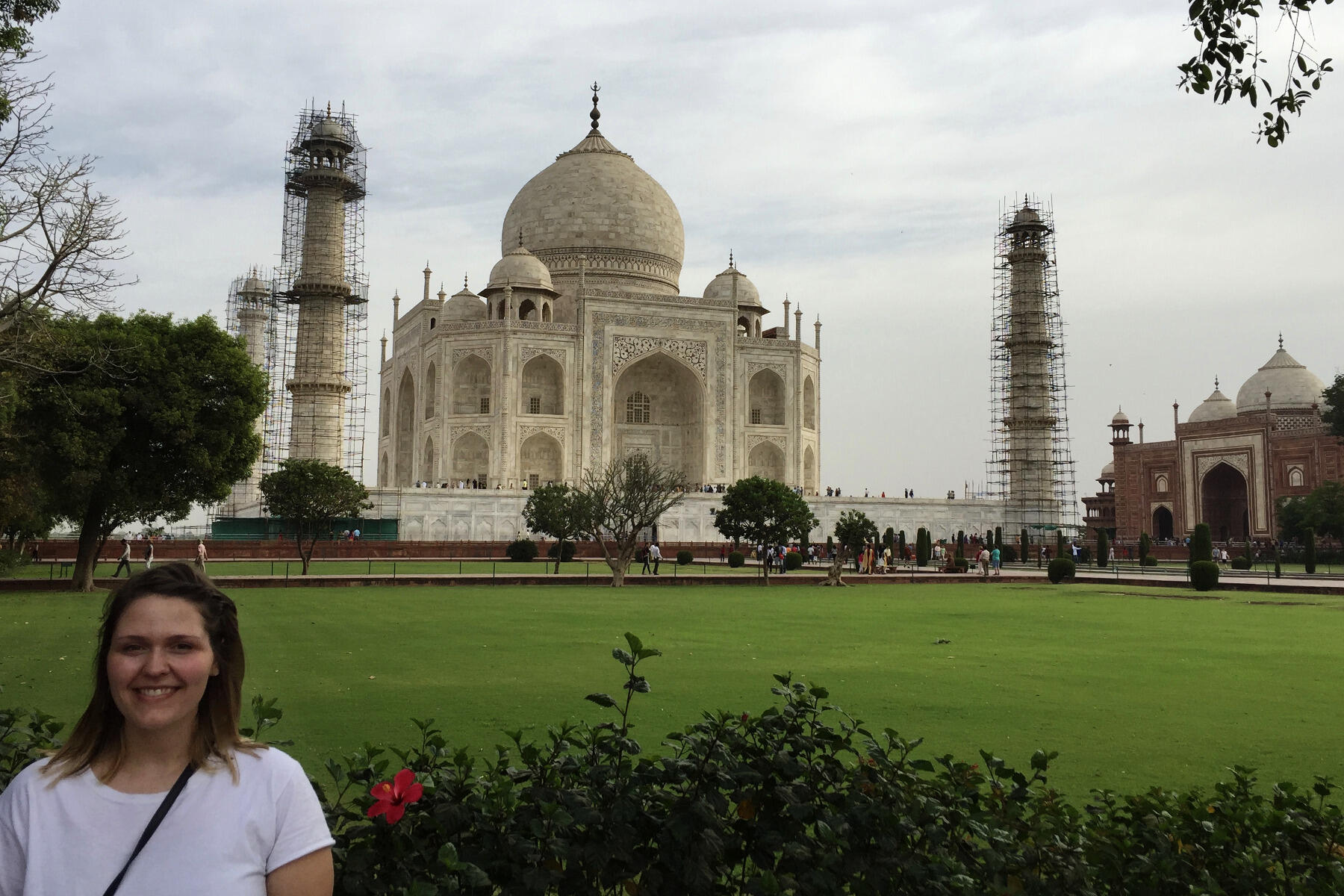
VCU School of Nursing family nurse practitioner student Carrie Schlabach spent the last part of her clinical practicum course providing primary health care to U.S. State Department staff stationed in Mumbai, India. “Tropical diseases like dengue fever and malaria were always at the back of our mind if someone came in with a fever,” Schlabach says. “That was interesting because it is not something I think about in the states.”

The 25-year-old graduate student was awarded a Mennonite Healthcare Fellowship scholarship to support her international clinical experience. From mid-March to late April, she worked as a nurse in India, where she provided initial consultations, diagnosed patients and provided treatment plans. While she was there, she had the opportunity to participate in safety drills that her preceptor was in charge of organizing.
“They ran a disaster drill when I was there,” she says. “It was cool to be a part of that and to see the training they go through.”
Schlabach’s trip was not all work and no play. After finishing the practicum, she visited the Taj Mahal and spent time at an elephant rescue sanctuary.
After graduating on May 14 with a master’s degree in nursing with a concentration as a family nurse practitioner, Schlabach hopes to work in standard practice or urgent care, but she says a career with the U.S. State Department is also on her radar.
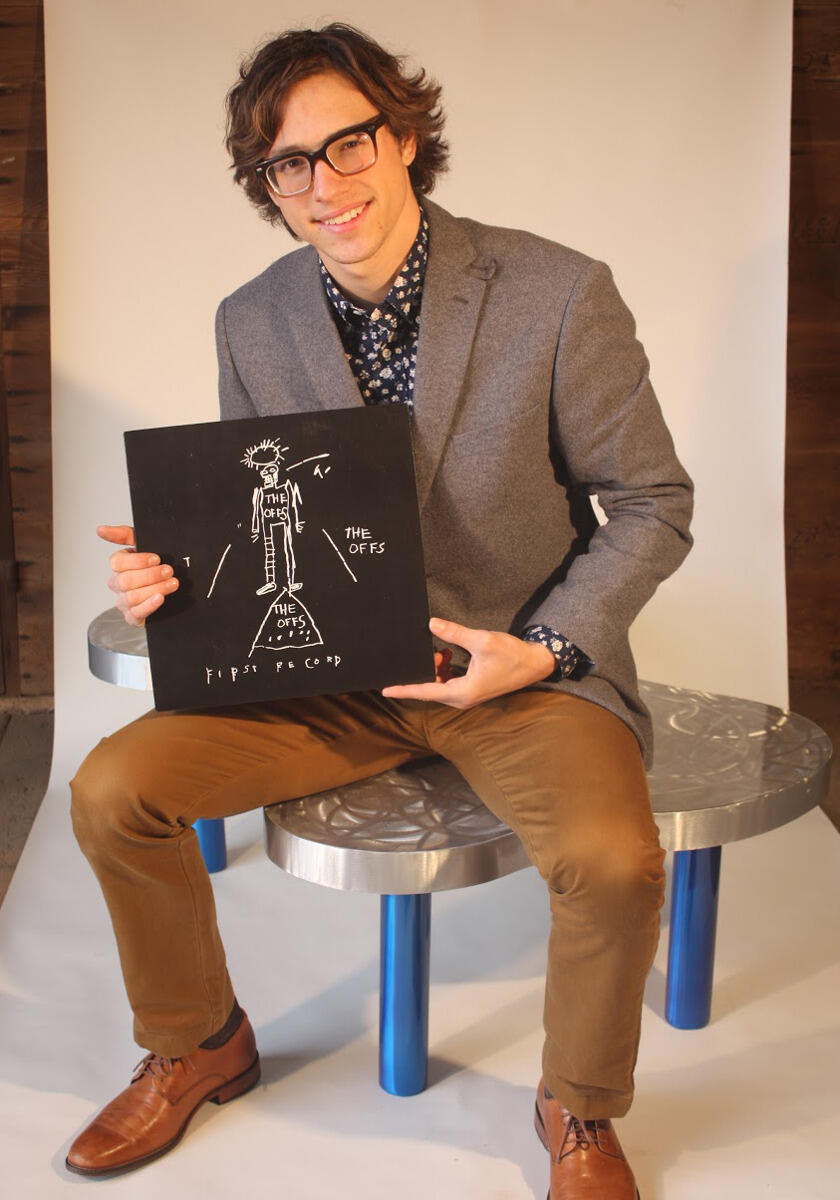
Michael Farmer arrived at VCU as a transfer student in 2012, having left Sewanee: The University of the South following an unsuccessful soccer career — “I wasn’t getting many minutes,” he said. Farmer will graduate on May 14 with a 4.0 grade point average and then begin his career as an associate specialist at Freeman’s, the prestigious auction house, on May 16.

Farmer’s success can be attributed to his creative use of VCU’s Bachelor of Interdisciplinary Studies Program.
Despite having a background in and passion for decorative arts and furniture — his father, Ken Farmer, is an independent appraiser and one of the well-dressed experts on PBS’ “Antiques Roadshow” — Farmer was not excited about the traditional route into that world until he saw an opportunity to pave his own path at VCU.
“The normal thing is to do a degree in art history,” said Farmer. “But I wanted to switch it up.” And so he combined art history courses from the School of the Arts with journalism courses from the Robertson School of Media and Culture to create his own arts journalism major. This gave Farmer the deep study of art history he needed, but also provided his studies a more experiential and interactive component.
It incorporated writing and journalism and got me out of the classroom.
“It incorporated writing and journalism and got me out of the classroom,” he said. “For example, I went to New York and Philly to interview dealers and specialists.”
The result is a well-rounded education that helped Farmer land a job at the famous Freeman’s auction house. He beat out an international field of candidates to do so, identifying and explaining various pieces of European and American furniture, silver and decorative arts as part of the interview process.
Farmer believes his unorthodox degree gave him an advantage over the other candidates, who were mainly art history-educated. “I learned to write in a much more succinct way,” said Farmer. “It’s an extra skillset.”
As Farmer begins his new career, he’s already thinking long-term, and already planning to do something a little different — just as he did with his major. “I’d eventually like to have my own business,” he said. “But I’d like to sell a combination of new and old, combining furniture design, silver and jewelry. I’d also love to have new clothes in there, too, and just make it its own thing.”
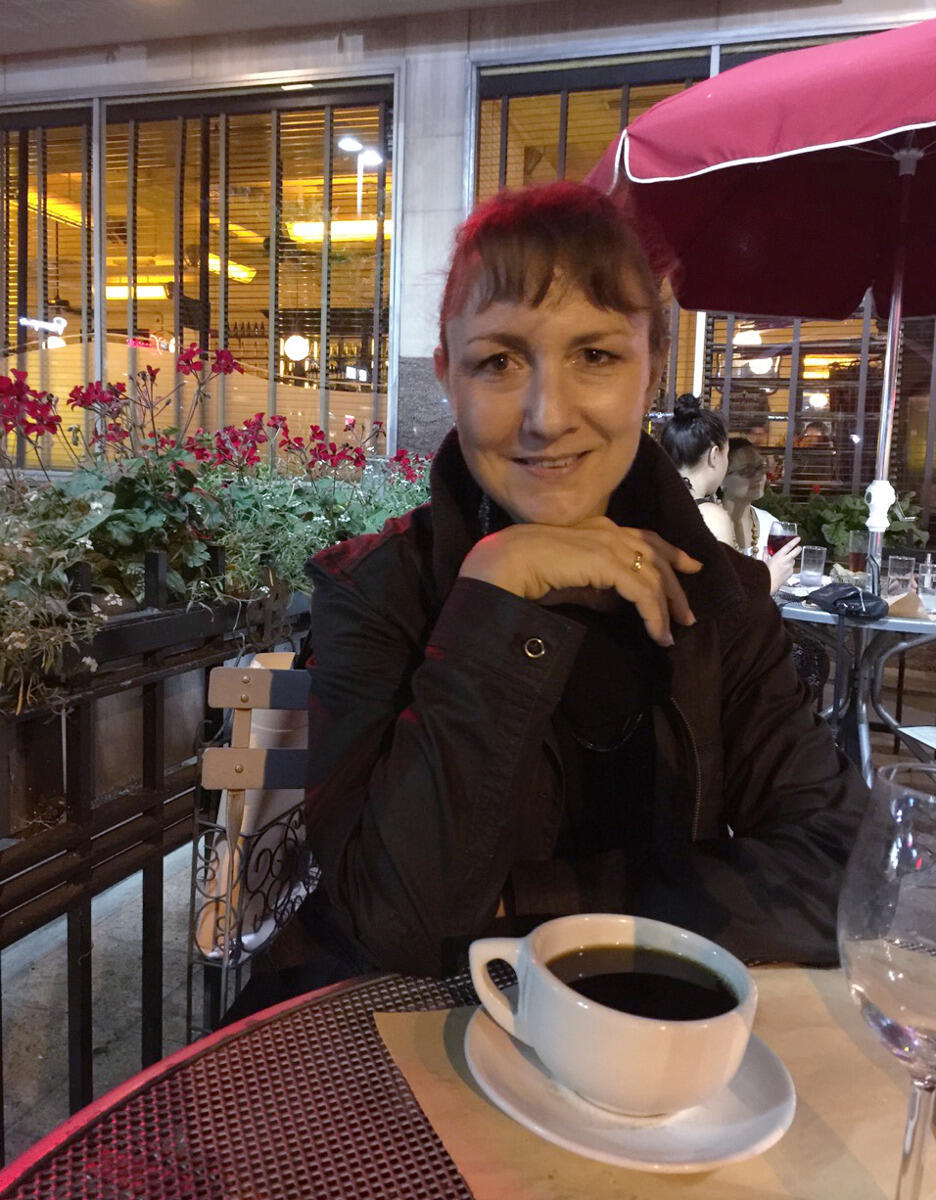
Janine Matthews thrived as a student and artist while attending a small private art and design college in Denver, Colorado. Before she could complete her degree, however, circumstances dictated a move to Richmond to be closer to her husband’s family. She applied to VCU and was accepted into the painting and printmaking program in the School of the Arts.

Immediately, she felt like “a minnow in the ocean.” Larger classes and more demanding professors knocked her off stride and wounded her confidence. However, Matthews was determined. She had first started her college studies in the 1980s at the Salisbury College of Fashion and Textile Design in her native United Kingdom. She had received a diploma but elected not to use her degree professionally because “I was not emotionally strong enough for the cutthroat world of fashion design.”
Instead, Matthews worked a wide range of jobs, often in fields that did not satisfy her creative itch, while supplementing her income using her artistic skills, such as by selling paintings or making hand-painted commercial signs. She lived in such locales as Scotland, Ireland, France and the Caribbean. She eventually met her husband while living on the island of St. Martin, and moved with him to Denver. It was there that Matthews, in a moment of soul searching, decided she needed to return to college and pursue a degree in painting, her true artistic passion.
With that foundation beneath her, Matthews was not about to stop short of the finish line because of an uneasy adjustment to campus life at VCU. She pressed harder and began to find more success in the classroom and the studio. A member of the Honors College, Matthews found that she loved not only the classes she took in her own discipline but in other areas of study, too, such as two stage and screenwriting classes with David Robbins and a performance art course taught by Tom Adair. Her grades reflected her renewed confidence. “I’ve found that when you start getting A’s, you start wanting A’s all the time,” Matthews said.
I’ve found that when you start getting A’s, you start wanting A’s all the time.
Crucially, Matthews found that she grew by leaps and bounds as an artist, finding new abilities and interests that she did not know lay dormant within her. The spark was a painting class with Javier Tapia that started with 14 weeks of “a creatively terrifying emotional roller coast” and ended with two weeks of the most satisfying and pleasurable painting experience of her life. After decades as a photorealist-style painter, Matthews has transitioned to paint in a more abstract style, attempting to depict what she feels rather than what she sees.
Now, as she prepares to graduate, she can look back and say she arrived at VCU unaware of what she didn’t know. She’s been pushed and cajoled and challenged as she never had been before. It has been a whirlwind, she said, but well worth it. Evidence of her growth came when she was recently accepted to graduate school at the Savannah College of Art and Design.
“I’m very grateful for my education here,” Matthews said.
Subscribe for free to the weekly VCU News email newsletter at http://newsletter.news.vcu.edu/ and receive a selection of stories, videos, photos, news clips and event listings in your inbox every Thursday.
Subscribe to VCU News
Subscribe to VCU News at newsletter.vcu.edu and receive a selection of stories, videos, photos, news clips and event listings in your inbox.








